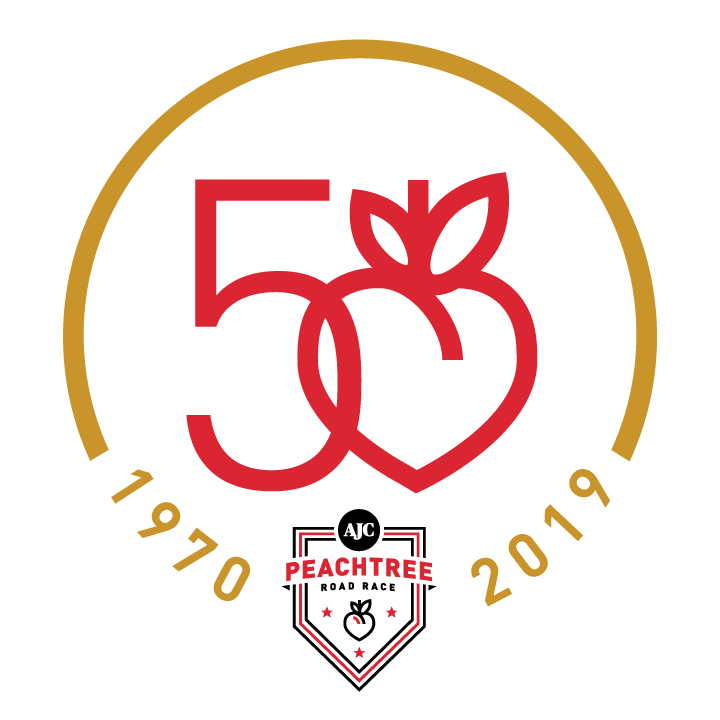Power of the Press

After the Peachtree Road Race lost its title sponsor 43 years ago, Jim Kennedy was approached by Atlanta Track Club for help in finding a new one.
Kennedy, then the assistant to the president of Cox Enterprises, Inc., and now chairman, made a few calls, according to the book “25 Years of the Peachtree Road Race.” His entreaties went nowhere.
Then the proverbial light bulb went off. “Why doesn’t the newspaper sponsor it?” he thought at the time. “It doesn’t cost much and it’s a neat little thing.”
So he went to the publisher to suggest getting involved.
“I don’t like car races,” growled the publisher.
No, said Kennedy. It’s running. “It’ll be a good thing for the city,” he told him. “Running is coming on.”
Thus did the Atlanta Journal-Constitution become the title sponsor of the AJC Peachtree Road Race in 1976, a year in which the race had approximately 2,250 finishers. That figure was more than double the year before, offering a hint of what was to come. Last year, 54,473 participants crossed the finish line on 10th Street, making Peachtree the largest road race in the country and the largest 10K in the world.
“Jim got it,” said Jeff Galloway, winner of the inaugural Peachtree in 1970 who later helped recruit elite athletes to the race. “He got it instantly. He believed the race could grow, and he was able to mobilize the resources of the AJC to make that happen. It made this thing bigger than life.”
But the AJC’s involvement in the race goes far beyond Kennedy: About 1,300 Cox employees are expected to run Peachtree this year alone.
Among them is Matt Sabath, who not only runs Peachtree but works it, as well.
As senior manager for platforms & projects, Sabath manages the AJC’s relationship with Atlanta Track Club from a technology perspective, including the voting for a T-shirt design, entering of the lottery, and posting of stories, photos, videos, and results on race day.
In 2015, the year Sabath began his job at the AJC, sleep the night before the race was in short supply thanks to a rebuild of the race results pages, undertaken to make them mobile-friendly, as well as the addition of the MyRunners feature. By 4 a.m. everything was working perfectly, so he decided to run. After finishing, he buckled back down to work.
By 8 p.m., he finally hit the wall and fell asleep on the couch.
After a few years in which everything went smoothly – including his decent night’s sleep before the race – last year brought a hitch, but not in the technology: an ankle injury put Sabath in a walking boot. Nonetheless, he walked the race, getting a new perspective along the way.
“You know there’s a lot going on around you during the race when you run, but when you walk it you seen and experience so much more,” he said.
Sabath’s connection to Peachtree actually goes back much further than his connection to the AJC. When he and his wife, Amy, first moved to Atlanta, they went out for breakfast on July 4 and noticed “all these people” coming into the restaurant wearing their T-shirts. What a great way to start the holiday, they thought. A few years later, a group from his Hillbrooke neighborhood began making the race, followed by time at the pool, a parade for the kids and then fireworks, an annual event. He’s done Peachtree every year since 2003, and plans to do so again this July 4.
“It clears my head,” he said of running. “I just gravitated to it. It makes you feel good and gives you a chance to think things through.”
Indeed, physical fitness was at the forefront of the AJC’s original decision to sponsor the race. Kennedy told “25 Years of the Peachtree Road Race” author Karen Rosen that the newspaper liked that “the average person who runs two miles a day can run and feel he’s accomplished something. What we want to do is build it into something that is big and good.”
Asked last week what he would have said back in 1976 if he’d been told the Peachtree would one day host 60,000 participants as it celebrate the 50th Running, Kennedy said via email: “I would have told them they were crazy. Back then, we were just trying to keep the race alive. After a few years and seeing the momentum building, I knew it would be a success and with great organizers, promoters and the commitment of the people it Atlanta, it was.
“Every time I see a Peachtree T-shirt, I feel a great deal of pride. The event has become such an important part of the Atlanta summer and for people who want to stay fit. It makes me very happy to have played a small role in the survival of the race.”






